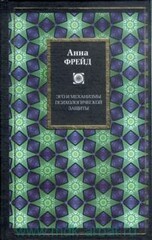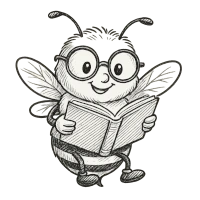Глава 13 ГЕНИАЛЬНОСТЬ
БИБЛИОГРАФИЯ
1. Anastasi, Anne, and Foley, J. P., Jr. A survey of the literature on artistic behavior in the abnormal: II. Approaches and interrelationships. Ann. N. Y. Acad. Sci., 1941, 42, 1-112.
2. Ausubel. D. P, Prestige motivation of gifted children. Genet. Psychol. Monogr.,
1951, 43, 53-117.
3. Bentley, J. E. Superior children. N. Y.: Norton. 1937.
4. Bett. W. R. The infimitie" s of genius. N. Y.: Philosophical Library, 1952.
5. Bonsall. Marcella R., and Stefflre. B. The temperament of gifted children.
Calif. J. educ. Res., 1955, 6, 162–165.
6. Bowerman. W. C. Studies in genius. N. Y.: Philosophical Library, 1947.
7. Bowman, Lillie L. Educational opportunities for gifted children in California.
Calif. J. educ. Res., 1955, 6, 195–199.
8. Bramwell. B. S. Galton's «Hereditary genius»: and the three following gen-
erations since 1896, Eugen. Rev., 1948, 39, 146–153.
9. Brimhall, D. H. Family resemblances among American men of science.
Amer. Naturalist, 1922, 56, 504–547; 1923, 57, 74–88, 137–152, 326–344.
10. Burks, Barbara S., Jensen. Dortha W, and Terman, L. M. The promise of
youth: follow-up studies of a thousand gifted children. Stanford Univer., Calif.: Stanford Univer. Press, 1930.
11. Carroll. H. A. Genius in the miIkingN.Y: McCraw-Hill, 1940.
12. Castle, Cora S. A statistical study of eminent women. Arrch. Psychol., 1913,
No. 27.
13. Cattell, J. McK. A statistical study of American men of science: III. Science,
1906, N.S., 24. 732–742.
14. Cattell, J. McK. Families of American men of science. I. Pop. Sci. Mon.,
1915, 86. 504–515; II. Sci. Mon., 1917, 4, 248–262: III. Sci. Mon., 1917, 5, 368–377.
15. Cattell, J. McK., and Cattell. J. (Eds.) American men of science. (5th Ed.)
N. Y.: Science Press, 1933.
16. Cattell, R, В., and Drevdahl, J. K. A comparison of the personality profile
(16 P.F.) of eminent researchers with that of eminent teachers and administrators and of the general population. Brit. J. Psychol., 1955, 46, 248–261.
17. Cellini. B. The life of Benvenuto Cellini written by himself. (Ed. and transl. by
J. A. Symonds.) N. Y.: Brentano, 1906.
18. Clarke, K. L. American men of letters. Stud, in Hist., Econ., and Pub. Law,
Columbia Univer., 1916, 72, No. 168.
19. Cox, Catharine M. The early mental traits of three hundred geniuses. Stan-
ford Univer., Calif.: Stanford Univer. Press, 1926.
20. Davis, B. Eminence and level of social origin. Amer. J. Social., 1953, 59,
11-18.
21. deCandolle, A. Histoire des sciences et des savants depuis deux siecles. Geneve:
Georg, 1873.
22. Dooley, L. Psychoanalytic studies of genius. Amer. J. Psychol, 1916, 27,
363-417.
23. Duff, J. F. Children of high intelligence: a follow-up inquiry. Brit. J. Psychol
1929, 19, 413–439.
24. Eells, W. C. The center of population of higher education. Sell, and Sot
1926, 24, 339–341.
25. Ellis, H. A study of British genius. London: Hurst and Blackett, 1904.
26. Freud, S. The relation of the poet to day-dreaming. Collected Papers, Vol. IV.
N.Y.: Internal Psychoanal. Press, 1925.
27. Galton, F. Hereditary genius. N. Y.: Macmillan, 1914 (1st Ed., London
1869).
28. Galton, F, English men of science. N. Y.: Appleton, 1875.
29. Gowan. J. C, and Cowan, May S. The gifted child: an annotated bibliography.
Calif. /. educ. Res., 1955, 6, 72–94.
30. Hall, T. Gifted children: the Cleveland story. Cleveland, Ohio: World
Publishing Co., 1956.
31. Herzberg, A. Psychology of philosophers. N. Y.: Harcourt, Brace, 1929.
32. Hildreth, Gertrude H. Three gifted children: a developmental study. /. genet.
Psychol., 1954, 85, 239–262.
33. Hildreth. Gertrude H., et al. Educating gifted children at Hunter College
Elementary School. N.Y.: Harper, 1952.
34. Hirsch, N. D. M. Genius and creative intelligence. Cambridge, Mass.: Sci-
Art, 1931.
35. Hitschmann, E. Great men: psychoanalytic studies. N. Y.: International
Universities Press, 1956.
36. Hollingworth, Leta S. Gifted children: their nature and nurture. N. Y.:
Macmillan, 1926.
37. Hollingworth, Leta S. Review of research. 39th Yearb., Nat. Soc. Stud. Educ.
1940. Part I. 43–66.
38. Hollingworth, Leta S. Intelligence as an element in personality. 39th Yearb.,
Nat. Soc. Stud. Educ, 1940. Part I, 271–275.
39. Hollingworth, Leta S. Children above 180IQ. N. Y: World Book Co., 1912.
40. Hollingworth, Leta S., and Kaunitz., Ruth M. The centile status of gifted children
at maturity. / genet. Psychol, 1934, 45, 106–120.
41. Hollingworth, Leta S., and Rust, Metta M. Application of the Bernreuter
Inventory of Personality to highly intelligent adolescents. /. Psychol., 1937, 4, 287–293.
42. Jacoby, P. Etudes sur la selection chez I'homme. Paris: Alean, 1904 (1st Ed.,
1881).
43. Juda, Adele. The relationship between highest mental capacity and psychic
abnormalities. Amer. J. Psychiat., 1949, 106, 296–307.
44. Juda, Adele. Hochstbegabung. Munich: Urban and Schwarzenberg. 1953.
45. Knapp, R. H., and Goodrich, H. B. Origins of American scientists. Chicago:
Univer. Chicago Press. 1952.
46. Knapp, R. H., and Greenbaum, J. J. The younger American scholar: his
collegiate origins. Chicago: Univer. Chicago Press, 1953.
47. Kretschmer, E. The psychology of men of genius. N. Y.: Harcourt, Brracc,
1931.
48. Lange-Eichbaum, W. The problem of genius. (Transl. by E. and C. Paul.)
N.Y.: Macmillan, 1932.
49. Lange-Eichbaum, W. Genie, Irrsinn undRuhm. Munich: Reinhardt, 1928.
50. Lange-Eichbaum, W. Das Genie-Problem; eine Einfuhrung. Munich:
Reinhardt, 1951.
51. Lehndorff, H., and Falkenstein, L. Christian Henrick Heineken: the
miracle boy from Lubeck, 1720–1724. Arch. Pediat., 1955, 72, 360–377.
52. Lewis, W, D. Some characteristics of children designated as mentally
retarded, as problems, and as geniuses by teachers. /. genet. Psychol., 1947, 70, 29–51.
53. Lombroso, C. The man of genius. N. Y.; Scribner's. 1895.
54. Lorge, I. Social gains in the special education of the gifted. Sch. and Soc,
1954, 79 (2024), 4–7.
55. Lorge, I., and Hollingworth, Leta S. Adult status of highly intelligent
children. /. genet. Psychol., 1936, 49, 215–226.
56. Miles, Catharine C, and Wolfe, Lillian S. Childhood physical and mental
health records of historical geniuses. Psychol. Monogr., 1936, 47, 390–400.
57. Odin, A. Genese desgrands hommes, gens de lettresfrancais modernes. Vol. I.
Paris: Librairie Universitaire. H. Welter (Ed.), 1895.
58. Parkyn, G. W. Children of high intelligence, a New Zealand study. London;
Oxford Univer. Press, 1948.
59. Pressev, S. L, Acceleration: basic principles and recent research. Proa,
1954, Conf. Teat. Probi, Educ. Test. Serv., 1955, 107–112.
60. Pressev, S. L. Concerning the nature and nurture of genius. Set. Mon., 1955,
81, 123–129.
61. Raskin, Evelyn. Comparison of scientific and literary ability: a biographical
study of eminent scientists and men of letters of the nineteenth century. /. abnorm. soc. Psychol., 1936, 31, 20–35.
62. Redfield, C. L. Great men and lime they are produced. Chicago: Author,
1915.
63. Roe, Anne. A psychological study of eminent biologists. Psychol. Monogr.,
1951, 65, No. 14.
64. Roe, Anne. A psychological study of physical scientists. Genet. Psychol.
Monogr., 1951, 43, 121–235.
65. Roe, Anne. A study of imagery in research scientists. /. Pers., 1951, 19,
459-470.
66. Roe, Anne. The making of a scientist. N.Y.: Dodd. Mead, 1953.
67. Roe, Anne. A psychological study of eminent psychologists and anthropol-
ogists, and a comparison with biological and physical scientists. Psychol. Monogr., 1953, 76, No. 352.
68. Rossman, J. The psychology of the inventor. (Hev. Ed.) Washington, D.C.:
Inventors Publ. Co., 1931.
69. Shannon, J. R. Traits of research workers. /. educ. Res., 1947, 40, 513—
521.
70. Terman. I., M. The intelligence quotient of Francis Galton in childhood.
Amer. J. Psychol, 1917, 28, 209–215.
71. Terman, L. M. Psychological approaches to the biography of genius. Science,
1940, 92,293–310.
72. Terman, L. M. The discovery and encouragement of exceptional talent.
Amer. Psychologist, 1954, 9, 221–230.
73. Terman, L. M. Scientists and non-scientists in a group of 800 gifted men.
Psychol. Monogr., 1954, 68, No. 378.
74. Terman, L. M., et al. Mental and physical traits of a thousand gifted chil-
dren. Stanford Univer., Calif: Stanford Univer. Press, 1925.
75. Terman, L. M., and Fenton, J. C. Preliminary report of a gifted juvenile
author. /. appl. Psychol, 1921, 5, 163–178.
76. Terman, L. M., and Oden, Melita H. The gifted child grows up. Stanford
Univer., Calif: Stanford Univer. Press, 1947.
77. Terman, L. M., and Oden, Melita H. Genetic studies of genius. Vol. V. Stanford
Univer., Calif.: Stanford Univer. Press, 1958.
78. Thorndike, R. L. An evaluation of the adult intellectual status of Terman's
gifted children. /. genet. Psychol, 1948, 72, 17–27.
79. Van Zeist, R. H., and Kerr, W. A. Some correlates of technical and
scientific productivity. /. ahnorm. soc. Psychol, 1951, 46, 470–475.
80. Van Zeist, R. H., and Kerr, W. A. A further note on some correlates of
scientific and technical productivity. /. abnorm. soc. Psychol: 1952, 47, 129.
81. Vinchon, J. L'artetlafolie. Paris: Boutelleau (Librairie Stock), 1924.
82. Visher, S. S. Scientists starred, 1903–1943, in «American Men of Science».
Baltimore, Md.: Johns Hopkins Press, 1947.
83. Wexberg, E. Individual psychology. (Transl. by W. B. Wolfe.) N. Y.: Cos-
mopolitan Book Corp., 1929.
84. White, R. K. Note on the psychopathology of genius. /. soc. Psychol, 1930,
1, 311–315.
85. Wiener, N. Ex-prodigy: my childhood and youth. N. Y.: Simon and Schuster.
1953.
86. Witte, К. The education of Karl Witte. (Transl. by L. Wiener.) N. Y.:
Crowell, 1914.
87. Witty, P. A study of one hundred gifted children. Kansas State Teach. Coil'.,
Stud. Educ, 1930, 1, No. 13.
88. Witty, P. A genetic study of fifty gifted children. 39th Yearb., Nat. Soc. Stud.
Educ, 1940, Part II, 401–409.
89. Witty P. (Ed.) The gifted child. Boston: Heath, 1951.
90. Witty, P., and Coomer, Anne. A case study of gifted twin boys. Except.
Child., 1955, 22, 104–108, 124–125.
91. Woods. F. A. Mental and moral heredity in royalty. N.Y.: Holt, 1906.
92. Worcester, D. A. The education of children of above-average mentality. Lincoln:
Univer. Nebraska Press, 1956.
93. Yoder, A. H. The study of the boyhood of great men. Ped. sem., 1894—96,
3, 134–156.













